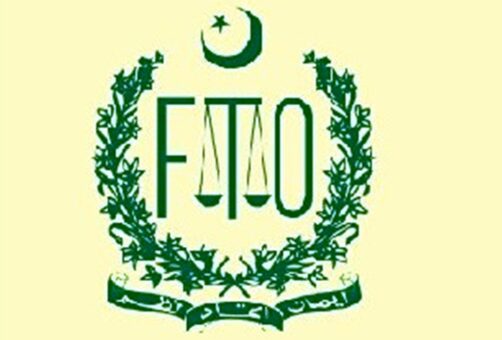Islamabad, May 29, 2023: The Federal Board of Revenue (FBR) has issued a directive to all chiefs, urging them to ensure that officials under their administrative control file their asset declarations.
(more…)Tag: FBR
FBR, Pakistan’s national tax collecting agency, plays a crucial role in the country’s economy. Pakistan Revenue is committed to providing readers with the latest updates and developments regarding FBR activities.
-

FBR receives suggestion to introduce fixed tax regime for small retailers
The Federal Board of Revenue (FBR) in Pakistan has received a proposal from the Institute of Chartered Accountants of Pakistan (ICAP) suggesting the implementation of a fixed tax regime for small retailers.
(more…) -

Karachi IR intelligence launches crackdown against mega sales tax refund scam
Directorate of Intelligence and Investigation (I&I) Inland Revenue (IR) Karachi of Federal Board of Revenue (FBR) has launched a massive crackdown on individuals involved in a multi-billion mega scam revolving around bogus sales tax refunds.
(more…) -

FBR initiates recovery of CVT on motor vehicles of past five years
The Federal Board of Revenue (FBR) has commenced the recovery of Capital Value Tax (CVT) on motor vehicles for the past five years, despite the fact that the levy was applicable from July 01, 2022.
(more…) -

FTO uncovers fake companies registered with FBR operating since 2008
The Federal Tax Ombudsman (FTO) has recently exposed significant inefficiencies within the tax authorities, revealing the existence of fake companies that have been registered and operating since 2008.
(more…) -

FBR collects massive Rs138 billion as income tax from banking interest
The Federal Board of Revenue (FBR) in Pakistan has reported a substantial collection of Rs138 billion as income tax from banking interest and returns from government securities.
(more…) -

FBR Collects Rs2.23 Billion as Capital Value Tax on Foreign Assets
The Federal Board of Revenue (FBR) has successfully collected Rs2.23 billion as Capital Value Tax (CVT) on foreign assets owned by resident individuals.
(more…) -

Pakistan considers expanding CVT to include all movable assets
Pakistan is contemplating an expansion of the scope of the Capital Value Tax (CVT) to encompass all movable assets, sources said on Wednesday May 17, 2023.
(more…) -

FBR publishes names of 3.67 million active taxpayers for TY2022
ISLAMABAD – The Federal Board of Revenue (FBR) Monday released the names of 3.67 million active taxpayers who have successfully filed their annual returns for the tax year 2022.
(more…) -

FBR notifies rules for transit trade between Tajikistan and Pakistan
The Federal Board of Revenue (FBR) on Friday issued SRO 560(I)/2023 to notify rules for implementing transit trade between Tajikistan and Pakistan.
(more…)